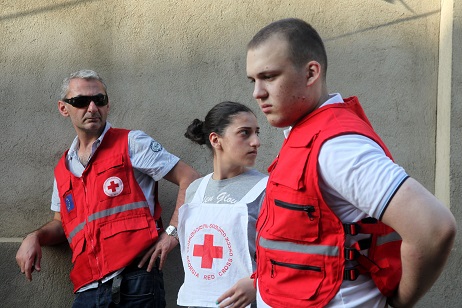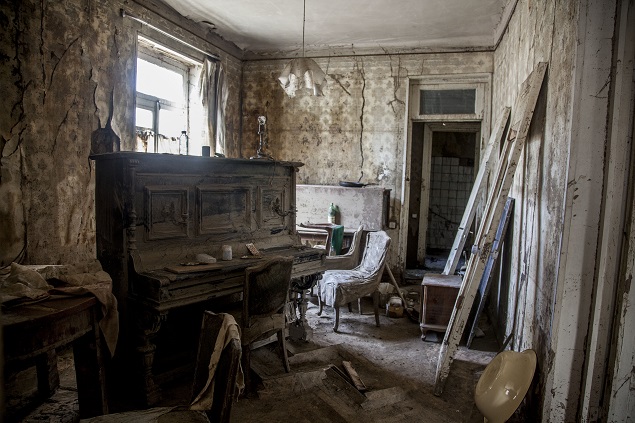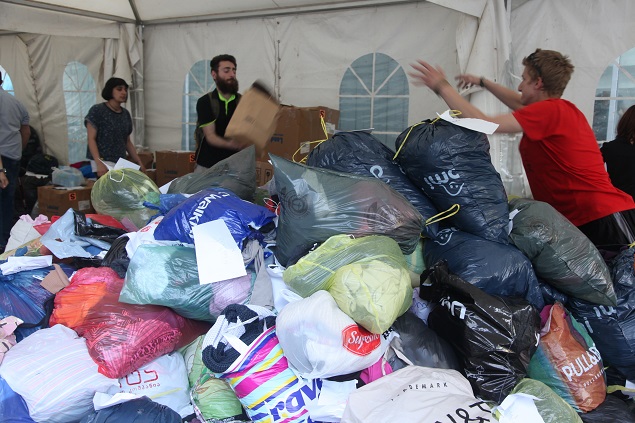Georgia Red Cross Society: A vital service for Tbilisi flood victims

When Georgia’s capital city Tbilisi was hit by a deadly flash flood on June 13, the main concern focussed on those who had died, were missing or had lost their homes.
But there were many other people who also needed help in Tbilisi that fateful night.
This included the shocked relatives of the victims or those who could not find their loved ones and had nowhere to go to ask for any kind of information about their missing relatives. These people were in need of urgent psychological help.
The Georgia Red Cross Society (GRCS) was one of the first aid organisations at the scene who offered vital support to such people. The organisation’s officers began offering assistance from the early morning on June 14.

One of the flood-affected houses at Svanidze St. Photo by Nino Alavidze/Agenda.ge.
Ninuka Siradze, a psychologist for GRCS, was dispatched to Svanidze St where a number of fatalities and casualties had been recorded that night. Armed with first aid kits, Siradze was assigned to support people in shock, transport them to a safer environment and assist them to connect with their families and loved ones.
More than 1,000 GRCS volunteers were engaged in rapid response tasks in the immediate aftermath of the crisis. In addition, 520 new volunteers joined the organisation on June 14, raising the total number of GRCS volunteers at the scene to more than 1,500.
These volunteers were directed to different flood-affected areas in Tbilisi to collect information about who needed what.
In the following days when thousands of Georgian citizens donated clothing and other essential items for flood victims, the volunteers separated the items into piles for men, women and children, and sent care packages to the victims.

Volunteers sort the humanitarian aid for the flood-affected families. Photo by Nino Alavidze/Agenda.ge.
All of these efforts meant GRCS volunteers not only helped in the aftermath of the June 13 disaster, but helped efficiently.
Read Agenda.ge’s article about the Heroes of June 13 here.
Psychologists suggested in the first two weeks following a disaster, citizens normally were the most active in helping victims. From then on, support diminished.
"But the need still persists and even increases,” said GRCS, adding ongoing assistance was needed for such victims.
GRCS said it was in contact with the 189 branches of Red Cross and Red Crescent national associations worldwide who were ready to help the flood-affected population. The organisation also applied to the Geneva Disaster Relief Fund for financial aid.
Meanwhile if you wish to donate funds to the Tbilisi flood relief fund, you can find full details of the donation accounts here.
 Tweet
Tweet  Share
Share